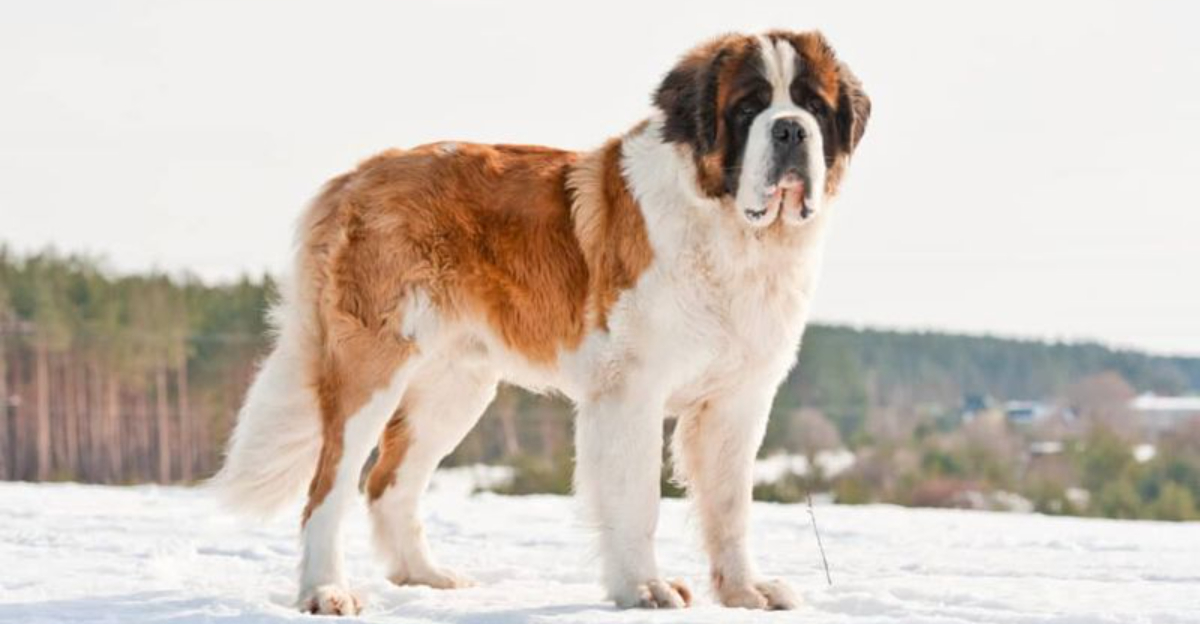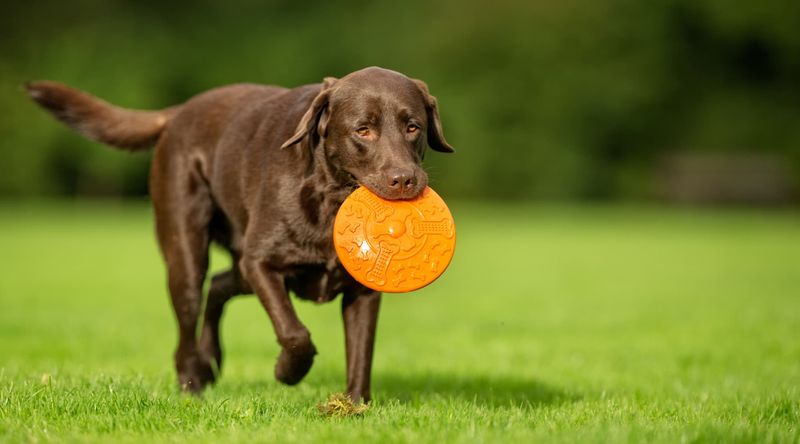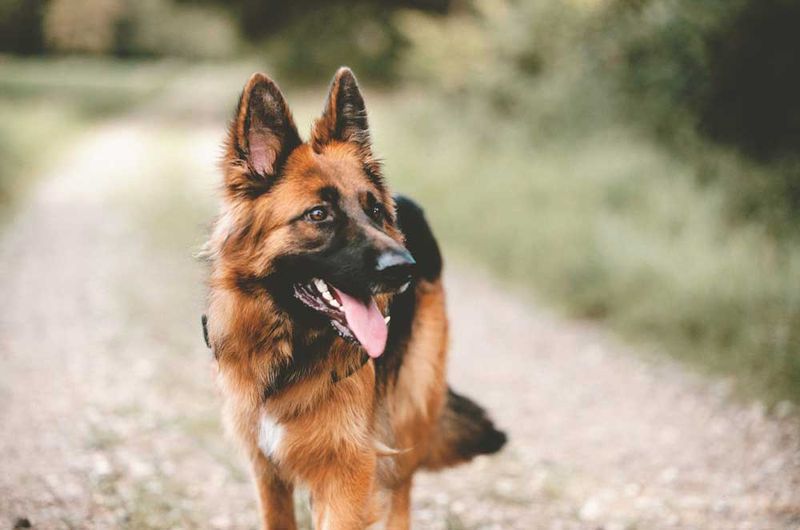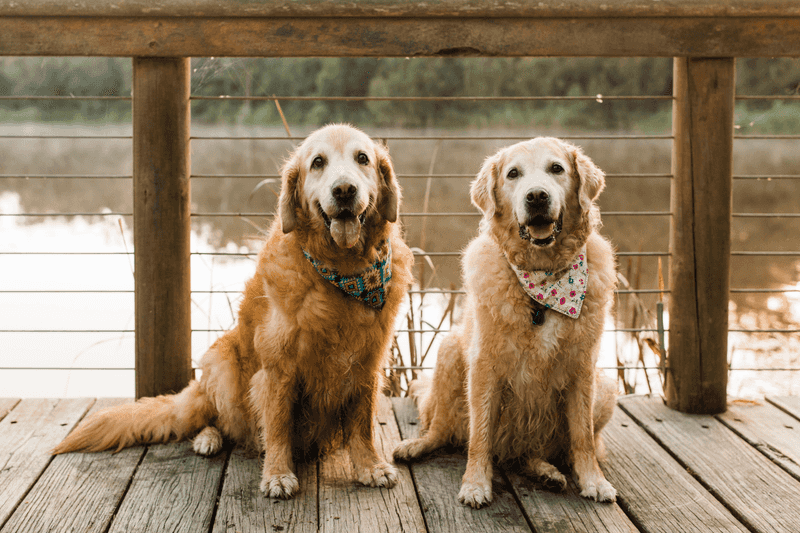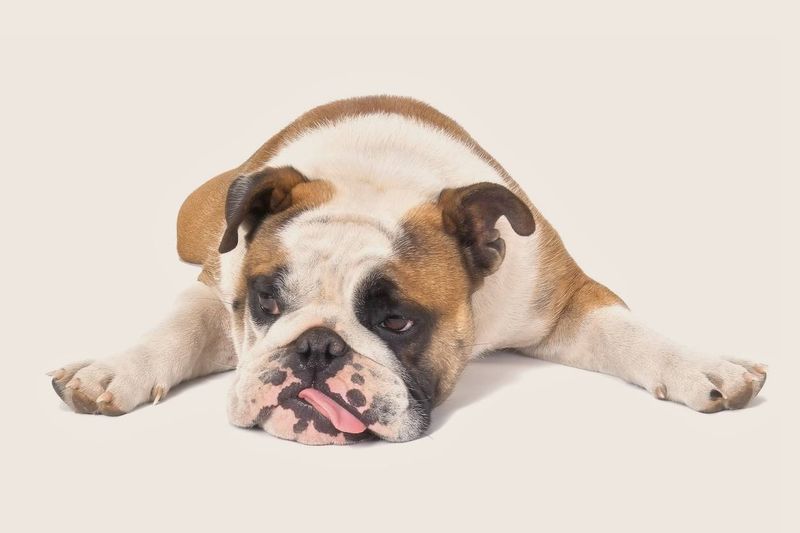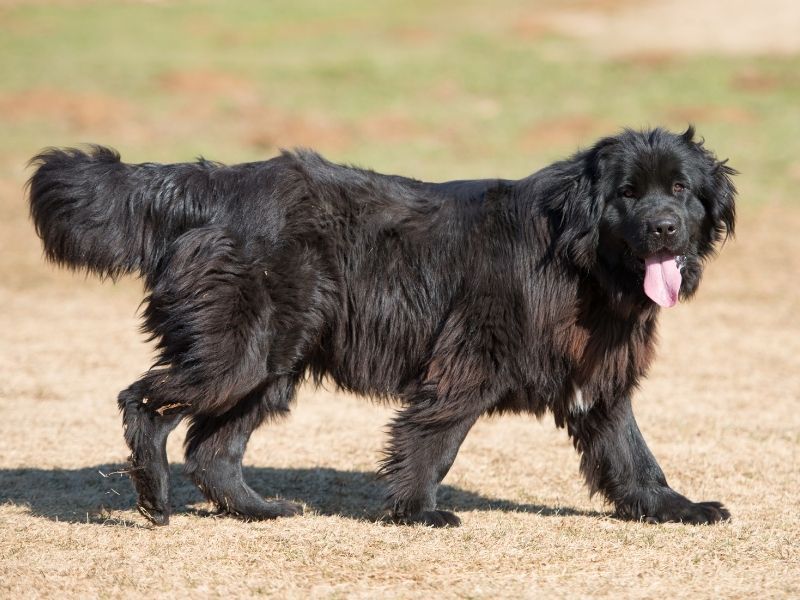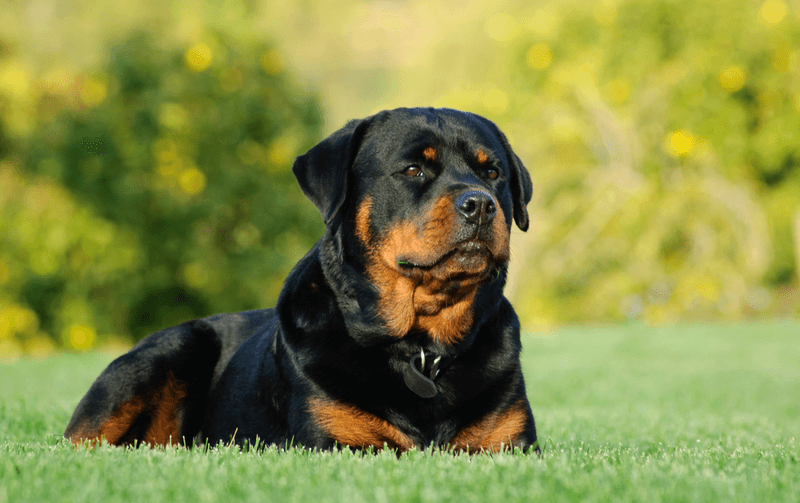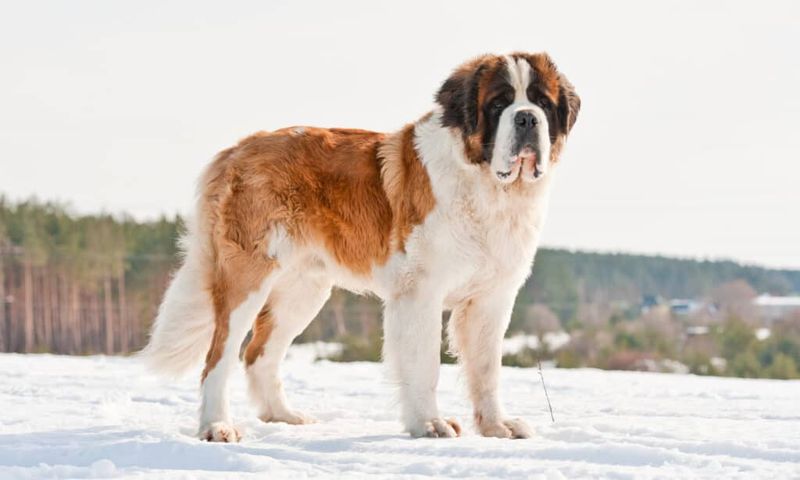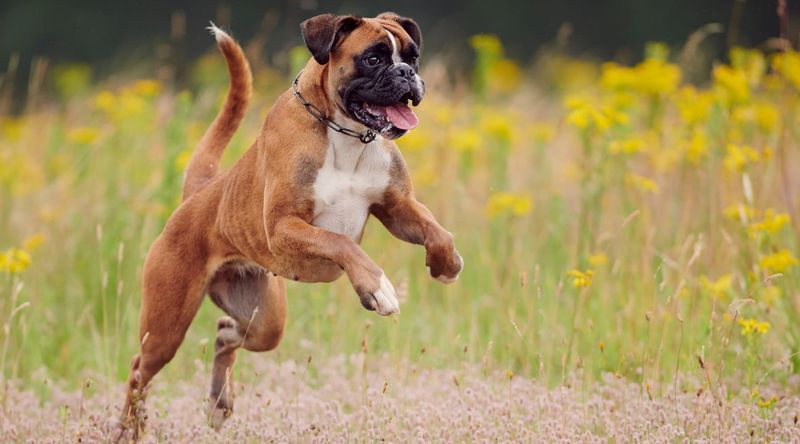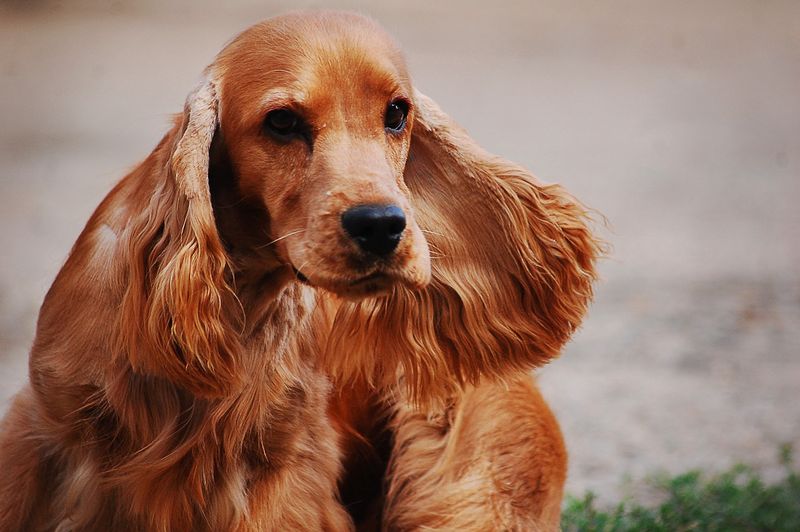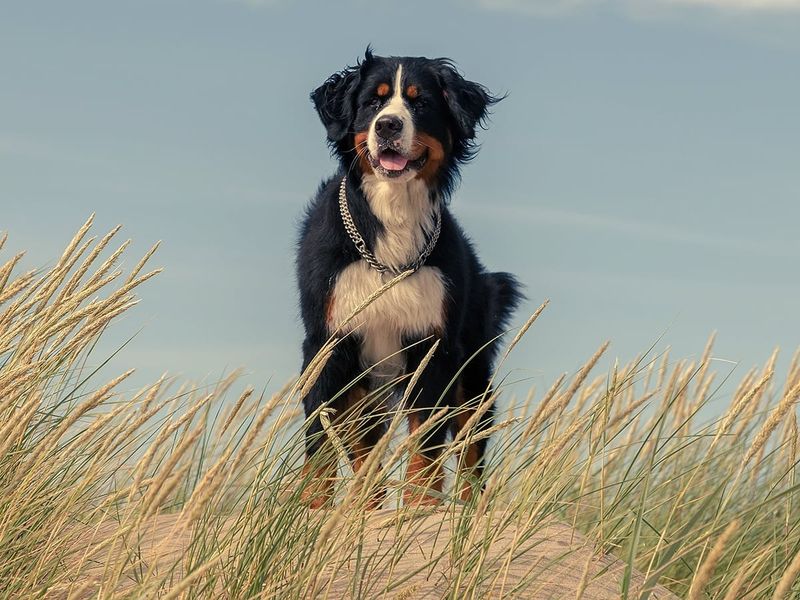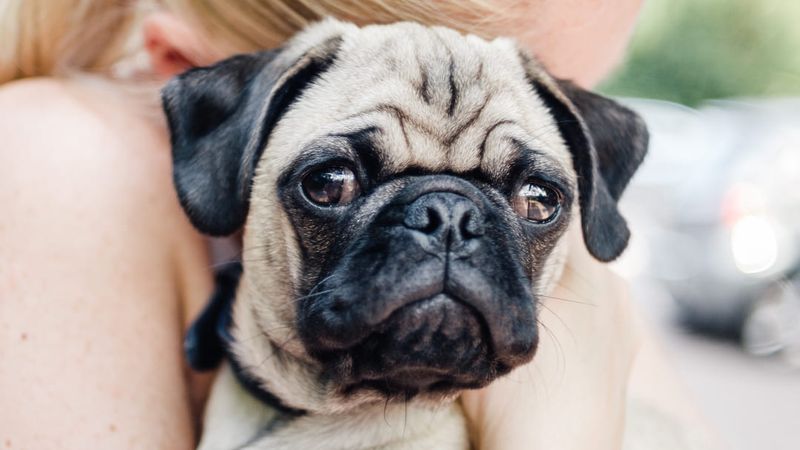Joint problems are a common concern for many dog breeds, often going unnoticed until they cause significant discomfort to our furry friends. Early detection and prevention can save thousands in vet bills and ensure a happier, healthier life for your pet. This blog post explores 13 specific dog breeds that are prone to hidden joint problems, offering insights and tips for owners.
Labrador Retriever
Renowned for their friendly demeanor, Labrador Retrievers are beloved family pets. Surprisingly, their energetic nature can lead to unnoticed joint issues. Labs are prone to hip and elbow dysplasia, conditions that can silently progress.
Regular vet check-ups can help catch these issues early. Maintaining a healthy weight is crucial, as excess weight strains joints further.
Labs thrive on physical activity, but over-exertion can exacerbate joint problems. Moderation is key. A simple game of fetch in the park can be both enjoyable and beneficial, ensuring your Lab stays active without harm.
German Shepherd
With their sharp intelligence and loyal nature, German Shepherds are favorites among dog enthusiasts. However, hidden beneath their robust exterior lies a predisposition to joint ailments.
Hip dysplasia is a common concern, often invisible until it progresses. Shepherds require a balanced diet rich in joint-supporting nutrients to mitigate this risk.
Regular exercise helps maintain muscle mass, supporting their joints. Engaging in activities like agility training can be both stimulating and beneficial. This combination of diet and exercise aids in keeping their joints healthy while satisfying their keen minds.
Golden Retriever
Golden Retrievers, famous for their gentle temperament, often mask joint discomfort until it becomes severe. Their friendly nature might overshadow early signs of pain.
These dogs are prone to hip and elbow dysplasia. A tailored diet with supplements such as glucosamine can aid joint health.
Swimming is an excellent low-impact exercise for Goldens, allowing them to stay active without straining their joints. A dip in the lake can be therapeutic, offering both exercise and relief, ensuring your Golden remains joyful and pain-free.
Bulldog
Bulldogs, with their endearing wrinkles, are adored by many. However, their unique physique contributes to potential joint problems, particularly in their hips.
These lovable companions may suffer from hip dysplasia, a condition that can go unnoticed due to their laid-back attitude. Weight management is crucial, as excess weight exacerbates joint stress.
Short walks and controlled play sessions are ideal. While they may not need extensive exercise, regular movement prevents stiffness. Bulldogs’ affectionate nature and moderate activity needs make them delightful, albeit occasionally challenging, companions.
Newfoundland
With a heart as big as its paws, the Newfoundland is every child’s gentle guardian. Despite their size, they are prone to joint problems, particularly in the hips.
Their gentle nature can mask discomfort, making regular vet visits essential. A diet high in joint-supportive nutrients helps maintain their health.
These dogs enjoy swimming, which is ideal for their joints. Playing in the snow offers low-impact fun and exercise, keeping them active and joyful. The combination of a nurturing environment and attentive care ensures their well-being.
Rottweiler
Rottweilers, with their protective instincts, are often seen as formidable guardians. However, their robust appearance hides susceptibility to joint issues, particularly hip and elbow dysplasia.
Preventing excessive weight gain is vital to minimize joint pressure. A balanced diet and controlled exercise routine are key to maintaining their health.
Activities like walking or short hikes cater to their strength without overburdening their joints. Their loyalty and strength make them exceptional companions, provided their health is vigilantly monitored.
Saint Bernard
Saint Bernards, known for their gentle giant persona, can develop joint problems as they age. Their large size makes them prone to hip and elbow dysplasia, often undetected until advanced stages.
Regular veterinary care and a diet rich in omega fatty acids can support joint health. Light exercise, like leisurely walks, prevents stiffness without straining their joints.
Their serene demeanor and loving nature make them wonderful companions. Ensuring proper care and attention to their physical needs guarantees a happy, healthy life.
Dachshund
Dachshunds, with their unique elongated bodies, are adored for their playful and curious nature. However, their structure places stress on their backs and joints, leading to hidden issues.
Intervertebral disc disease is a significant concern. Avoiding high jumps and providing ramps for furniture access can reduce strain.
Regular vet checks and a diet supportive of spine health are essential. These measures, coupled with gentle play, ensure their well-being. Their spirited personality continues to delight, provided their health is closely monitored.
Boxer
Boxers, with their exuberant energy and playful antics, bring joy to many households. Yet, beneath this lively exterior, joint problems like hip dysplasia can develop unnoticed.
A proactive approach involves maintaining a healthy weight and incorporating joint supplements into their diet. Regular, moderate exercise is beneficial.
Playing in the backyard or enjoying a game of fetch allows them to burn energy without harming their joints. This ensures their playful nature remains unhindered by discomfort, keeping them content and vibrant.
Great Dane
Great Danes, with their imposing stature and gentle disposition, are true gentle giants. However, their size makes them susceptible to joint issues, particularly in their hips.
Regular check-ups and a diet rich in joint-supportive nutrients are crucial to their well-being. Their exercise should be moderate, avoiding any excessive stress on their joints.
A leisurely walk in the park suits their laid-back nature, providing both enjoyment and exercise. Their majestic presence continues to captivate, especially when their health is diligently maintained.
Cocker Spaniel
Cocker Spaniels, with their endearing expressions and flowing coats, are beloved companions. However, they can harbor joint problems, especially in the hips and knees.
Regular grooming and careful observation for signs of discomfort are important. Joint supplements and a balanced diet aid in maintaining their overall health.
Playful activities in open spaces provide the exercise they need without overexertion. Their cheerful disposition and affectionate nature make them delightful pets, with joint health vigilantly safeguarded.
Bernese Mountain Dog
With its tri-colored coat and friendly demeanor, the Bernese Mountain Dog is a striking presence. Yet, this breed is prone to joint problems, particularly hip and elbow dysplasia.
Early intervention and regular vet visits can help manage these issues. A diet rich in omega-3 fatty acids supports joint health.
Engaging in gentle walks and playtime in the garden provides them with necessary activity. Their loving nature and majestic appearance continue to bring joy, provided their health is carefully attended to.
Pug
Pugs, with their charming faces and compact bodies, often mask joint problems due to their calm demeanor. Their short legs and stocky build contribute to hidden joint issues.
Weight management is crucial to prevent additional stress on their joints. A balanced diet and moderate exercise help maintain their health.
Short walks or indoor play are suitable activities, ensuring their happiness without undue strain. Their delightful personality and unique appearance continue to endear them to many, with careful attention to their joint health.
